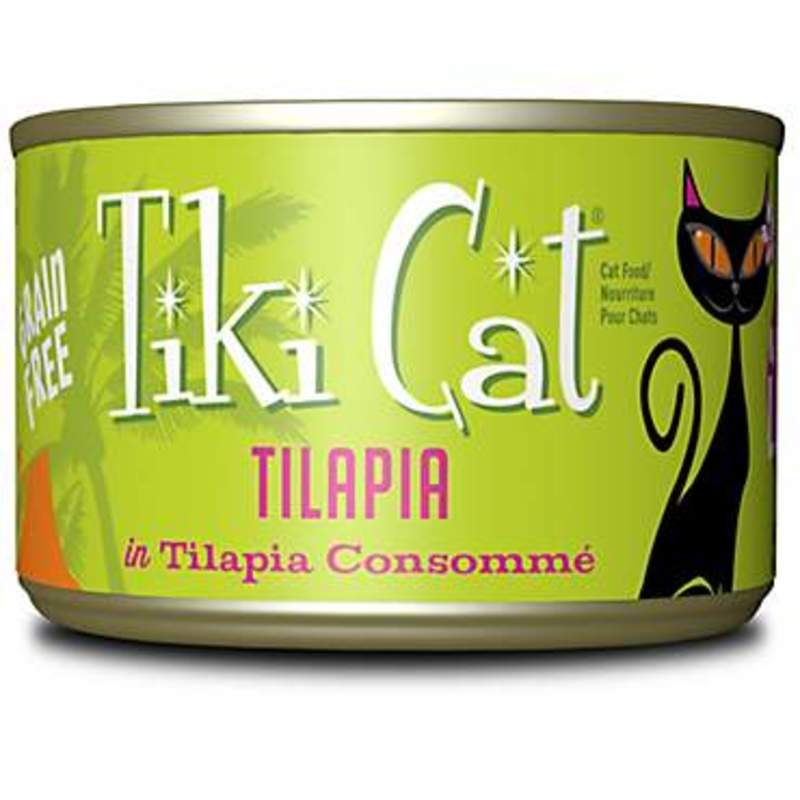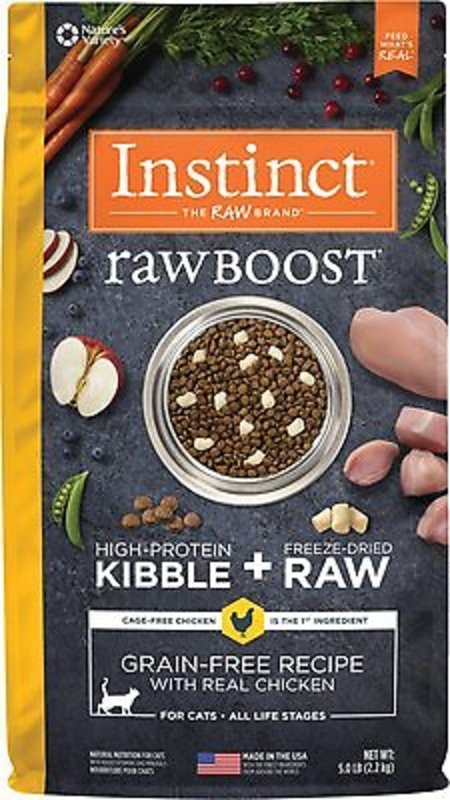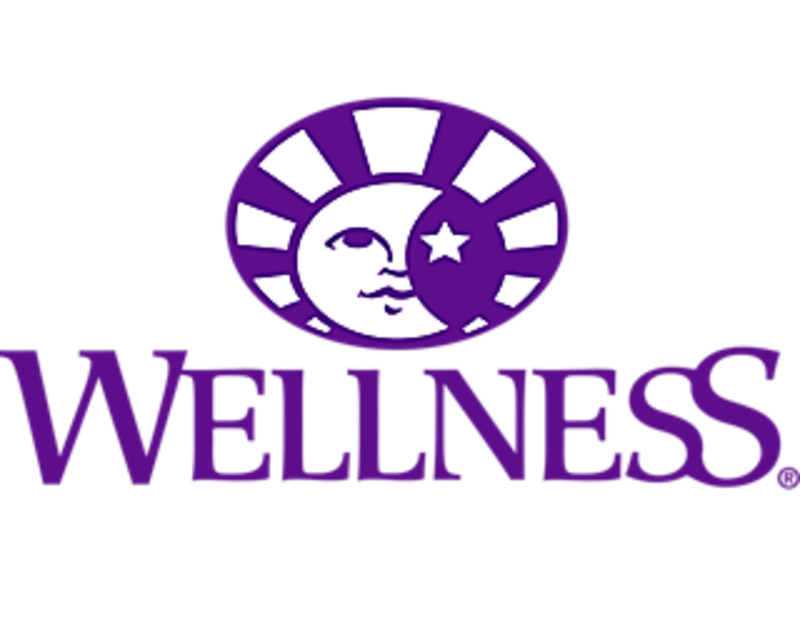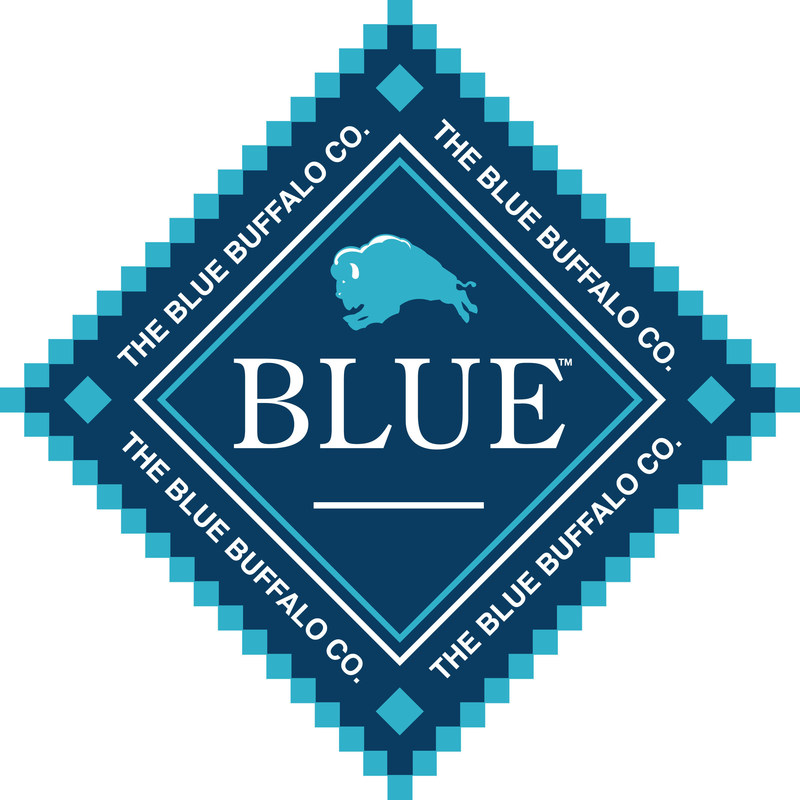Best Cat Food
Cats are members of the family, and it's essential that they get the care they need to thrive and live their best lives. That care includes the well-balanced nutrition they need to optimize their health and well-being. But this can mean sifting through countless cat food brands to find the best option for your cat.
There are many considerations to keep in mind when choosing the right food for your four-legged family members. The cat food you choose should be optimal for your cat's activity level, behavior, life stage and health.
The sheer number and variety of options for healthy cat food on the market can be overwhelming. Fortunately, cats can thrive on a range of meals if they are meat-based, nutritionally balanced, and designed to meet a cat's specific dietary needs. Continue reading to learn more about our choices for the best cat food brands in multiple categories.
Our Top Picks For Best Cat Food
- Wellness Complete Health Kitten Formula – Best For Kittens
- Tiki Cat Luau Variety Pack – Best Wet Cat Food
- CRAVE Indoor Adult Cat Food – Best Dry Cat Food
- Blue Buffalo True Solutions Perfect Coat Skin & Coat Care Formula – Best For Coat Health
- Instinct Raw Boost – Best Raw Cat Food
Best Cat Food Reviews
Why we chose it: The high protein content, low-fat percentage and relatively high fiber content elevated Wellness Complete Health Kitten Formula above the other contenders.
Wellness Complete Health Kitten is surprisingly budget-friendly considering the quality ingredients and excellent nutrition it provides. This dry kibble is made with a multitude of quality ingredients, including deboned chicken, chicken meal, oats, barley, flaxseed, rice, salmon oil and cranberries, and is formulated specifically for kittens up to a year.
It contains no soy, corn, artificial fillers, artificial preservatives or meat by-products. It also boasts some truly valuable nutrients, including DHA, salmon oil and other ingredients that have been shown to support brain and eye development in your growing kitty.
Reviews are mixed, although this seems to be due to individual circumstances. For example, one kitten was too young to tolerate crunching on dry food, another was reluctant to switch from milk to solid cat food and so on. A few reviewers also mentioned that this food gave their kittens increased gas.
Frankly, kittens and cats can be picky, and many of them fare best on a combination of wet and dry food. But as dry kitten food goes, this is an optimal choice.

Best Wet Cat Food: Tiki Cat Luau Variety Pack
Why we chose it: The multitude of flavors in Tiki Cat's Luau variety pack, as well as the brand's natural ingredients and the company's commitment to keeping its cat food free of unhealthy add-ons, made it a cut above the rest.
Tiki Cat wet food is made with natural ingredients, contains taurine and is free from GMOs, grains, wheat, soy, corn, carrageenan and MSG. Its remarkably high moisture content helps to keep your cat hydrated and also flushes the urinary tract, promoting optimal urinary health.
At an average cost of a couple of dollars per can, Tiki Cat canned cat food is moderately priced among the wide variety of canned wet cat food options. Reviewers across multiple sites seemed pleased with the flavor variety, the purity of the ingredients used and the incorporation of real shredded chicken and salmon in the various recipes.
As its name suggests, the Luau variety pack contains a variety of flavors, which can benefit picky eaters. The downside is that those picky eaters may not like all of the included flavors.
Remember that after opening a can of wet cat food, you must use it promptly or store it safely in the refrigerator.
Why we chose it: Customers (and their cats) were highly satisfied with CRAVE's grain-free indoor adult cat food formula, which is made with high-quality, real-meat proteins and includes vitamin E, which research has linked to immune function support.
Although CRAVE is among the pricier options for dry cat food, the sheer number of reviews mentioning that cats seem to prefer CRAVE over other dry cat foods is a powerful selling point. The brand offers several flavors, allowing you to find something your picky kitty is sure to love. Just keep in mind that some reviews mentioned that the bits of kibble might be too large for some cats to chew.
In addition to being made with protein from real meat sources, other notable ingredients include high-quality carbohydrates such as potato protein, pea protein and flaxseed. CRAVE incorporates several essential vitamins and minerals, including vitamin E, making it a well-rounded option for the cat who prefers their food on the dry side.
Why we chose it: This vitamin-rich dry kibble is specially formulated by veterinarians to care for your cat's coat and skin.
On the websites offering Blue Buffalo True Solutions Perfect Coat Skin & Coat Care Formula dry cat food, reviews abound from pet owners thrilled with the improvement in their cat's skin and coat health. This brand seems especially beneficial to cats who suffer from allergies and dandruff, although other reviews mentioned healthier, shinier coats even in cats without such health issues. Most cats also seem to enjoy the taste, which is a strong plus for such a specialized formulation.
Real salmon is the first ingredient, followed by both omega-3 and omega-6 fatty acids. This recipe is formulated by veterinarians and incorporates a variety of minerals and vitamins, and it is free of wheat, soy, corn, meat by-products and artificial preservatives or flavors. These factors combined tipped the scales for us despite the higher price tag.
One disappointing note is that this formula is available in just two sizes, and neither size comes in a resealable bag.
Why we chose it: Although most veterinarians recommend against adopting a raw-food diet for your cat, if you have consulted with your vet and decided that raw foods are the best approach, Instinct Raw Boost Grain-Free cat food combines a grain-free, raw diet with dry cat food for the best balance for your cat.
Instinct Raw Boost Grain-Free dry cat food is unique in that it incorporates freeze-dried chunks of raw meat or fish protein, allowing you to stay away from the wet food that is typically inherent in a raw-food diet. Plus, the resealable bag helps to keep the dry kibble and freeze-dried cat food bits fresh. This minimally-processed formula is rich in probiotics, antioxidants and omega fatty acids.
Some reviewers mentioned a funky smell when they opened the bag, but most were pleased with their cat's acceptance of Instinct Raw Boost, which comes in three flavors: chicken, duck and salmon. Other reviewers found that their cats avoided eating the freeze-dried bits, sticking strictly to the kibble. Given the cost of the food, if your cat only eats part of it, this could be a considerable drawback. But if your cat digs the free-dried bits, this is a strong menu option.
Other Cat Food We Considered
We considered multiple contenders for the top spot on our list of best cat foods. The brands below produced some of the healthiest cat food but didn't make the shortlist in the end because the cons outweighed the pros in these cases.
Royal Canin Indoor Dry
Royal Canin Indoor Dry formula is an excellent dry food choice for adult cats. It contains a blend of fiber-filled ingredients to promote healthy digestion and help maintain your cat's weight. With an optimized combination of protein from the chicken meal and animal fat, vegetable fiber, carbohydrates, vitamins and minerals, Royal Canin Indoor Dry is both easily digested and easily metabolized. Royal Canin Indoor Dry provides well-balanced nutrition for your cat and comes in multiple size options. However, this brand's high cost per pound knocked it out of our top spot.
Smalls Human-Grade Fresh Cat Food
Smalls is truly dedicated to providing your cat with optimal nutrition, creating its human-grade fresh cat food in small batches using fresh ingredients. Its protein sources are sustainable and ethically and humanely harvested. The recipes contain no artificial flavors, colors, fillers or preservatives. We only saw two disadvantages to Smalls. First, this cat food is only available via subscription, leaving you beholden to a delivery schedule.
However, the surprisingly low protein percentage in this formula was more important to us. Although we love the idea of feeding our cats with human-grade, USDA-certified ingredients, Smalls's four flavors contain less than 20% protein, which wouldn't meet an adult cat's dietary requirements. Also, the window of time to use this food once thawed is remarkably small; you should move it from the freezer to the fridge to thaw no more than 24 hours prior to feeding time.
Hill's Science Diet Adult Indoor Dry Cat Food
Because of its combination of energy support and easily-digestible ingredients, veterinarians frequently recommend Hill's Science Diet to nutrition-savvy cat owners. Featuring high-quality meat, fish oil, animal fat, whole grains, amino acids and vegetable fibers, this filling formula helps keep your cat feeling satisfied longer, which can help to maintain weight while supporting your cat's indoor lifestyle. This formula can be costly, however, and we found it was surprisingly high in carbs compared to the competition.
Cat Food Guide
All cat owners want to provide their feline family member with everything they need to live a long, healthy life. A well-balanced diet consisting of the healthiest cat food is essential to your cat's health and well-being. In this section, we will go over the necessary nutrients to optimize your cat's diet, foods that can be toxic to cats, and how to choose the right cat food brand for your pet.
Essential Nutrients That Cats Need In Their Diet
The most important thing to understand about a cat's nutritional needs is that cats are obligate carnivores, which means that, as a species, they require nutrients that they can only obtain by consuming animal products. Throughout history, cats have hunted prey for nutritional content, including high protein, moderate fat and minimal carbohydrates. Although your cat is domesticated, its nutritional needs are still largely the same as those of its ancestors.
In addition to protein, fat and carbohydrates, your cat also needs a variety of other nutrients, including specific vitamins and minerals, fatty acids and amino acids. When it comes to these nutrients, it's important to ensure your cat receives the correct proportions of each. Some people give their cats supplements, but without consulting a veterinarian, these can actually be harmful.
It's also essential to remember that cats must always have access to fresh, clean drinking water. As a matter of fact, water can be considered the most important nutrient in a cat's diet. Without adequate hydration, your cat could become seriously ill or even die.
Dangerous Foods For Cats
There are a host of human foods that cats should never eat. Beyond the possibility of weight gain from eating "people food," your cat could suffer serious health consequences from consuming foods you may not realize are toxic, poisonous or even deadly to cats.
- Onions, shallots, scallions, leeks, chives and garlic can damage red blood cells and potentially cause anemia. Particularly dangerous to cats is exposure to concentrated forms of these ingredients, such as garlic powder or onion soup mix.
- Raw meat, raw eggs and bones can cause salmonella or E. coli poisoning in cats. Your cat's contaminated food can also transmit these infections to humans, so it is important to wash your hands after cooking with raw foods. In addition, an enzyme found in raw eggs can cause skin or coat problems for your cat. As with any animal, raw bones can pose various dangers to cats, such as choking hazards, damage to the teeth, or injury to the digestive tract.
- Chocolate and caffeinated drinks are just as toxic to cats as they are to dogs. Both chocolate and caffeinated beverages contain naturally-occurring substances called methylxanthines, which can cause your cat to suffer digestive disturbances, vomiting, diarrhea, increased body temperature, abnormal heart rhythm, increased thirst, muscle tremors, abdominal pain or discomfort, or even seizures.
- Raw dough and alcohol are both dangerous for a cat to consume. The ingestion of raw dough can create alcohol in the cat's stomach. Any amount of alcohol in your cat's stomach can lead to diarrhea, vomiting, tremors, confusion, difficulty breathing and even coma or death. If your cat has ingested even a small amount of either alcohol or raw dough, you should consult a vet immediately.
- Milk and dairy products are not good for cats, even if cats are famous for their love of drinking milk. Beyond their own mother's milk during kittenhood, cats may have a hard time digesting the lactose in milk and dairy products, which can lead to an upset stomach or diarrhea.
- Grapes and raisins can make your cat very sick and even ultimately cause kidney failure, even in small amounts. It's essential to keep grapes and raisins well out of the reach of your cat. This likely includes keeping these foods off the kitchen counter and table.
How To Choose The Best Cat Food Brand
Choosing the right food for your cat depends on a lot of different factors, such as your cat's life stage, weight, overall health and more. Here are a few general rules you should follow when deciding on the specifics of your cat's diet.
Know Their Nutritional Requirements
While your individual cat's nutritional requirements may vary, according to the Association of American Feed Control Officials (AAFCO), the diet of an adult cat should consist of a minimum of 26% protein. In comparison, a kitten requires a diet that contains a minimum of 30% protein.
Overweight cats may require a lower caloric diet than other cats. Cats with illnesses, allergies, sensitivities or health conditions may also have different nutritional requirements. Your veterinarian can help you determine your cat's specific caloric and nutritional needs.
Check For High-Quality Ingredients
Ideally, you should look for cat food that contains high-quality ingredients, which include:
- A named protein source such as chicken, beef, turkey, salmon and so on. Steer clear of cat food that lists the mysterious word "meat" as an ingredient.
- Quality, named carbohydrates such as sweet potatoes, green peas and potato starch. Many dry foods use carbohydrates as fillers, which hold the bits of kibble together. Various grains like corn and wheat can also function as fillers, although some people prefer not to feed their cats grains.
- A named fat source such as chicken fat, sunflower oil or other oils.
- Natural preservatives such as vitamin E or vitamin C, or no preservatives at all.
- Human-grade ingredients are ingredients that are safe for human consumption.
It's best to avoid feed-grade ingredients, which are lower quality than human-grade ingredients and contain fewer nutritional benefits. Some examples of low-quality ingredients may include:
- Meat and bone meal
- Meat by-products
- Chemicals and artificial preservatives
- Food dyes
- Rendered animal fat
Consider Your Cat's Age
Cats have different nutritional requirements during different stages of their life. For example, kittens require higher protein than adult cats, while senior cats need lower calcium, magnesium and phosphorus. It's important to keep your cat's age and corresponding nutritional needs in mind when choosing the right cat food.
Read Customer Reviews
One of the most tried and true methods of researching a product is to check out the reviews other customers have left about it. But again, you shouldn't rely only on reviews on the company's website. Look for 3rd party review websites as well.
Cat Food FAQ
When it's time, your regular veterinarian should be able to provide a recommendation for a specialist in veterinary nutrition. Otherwise, you can also find recommendations and various other resources on the American Academy of Veterinary Nutrition's website.
How We Chose The Best Cat Food
We used multiple criteria to compile our list of Best Cat Food. The factors considered included:
- Natural, healthy ingredients
- Price point
- Well-balanced nutrition
- Reported palatability
- Customer reviews
Summary Of Digg's Best Cat Food
- Wellness Complete Health Kitten Formula – Best for kittens under one year of age
- Tiki Cat Luau Variety Pack – Best wet cat food
- CRAVE Indoor Adult Cat Food – Best dry cat food
- Blue Buffalo True Solutions Perfect Coat Skin & Coat Care Formula – Best for coat health
- Instinct Raw Boost – Best raw cat food



